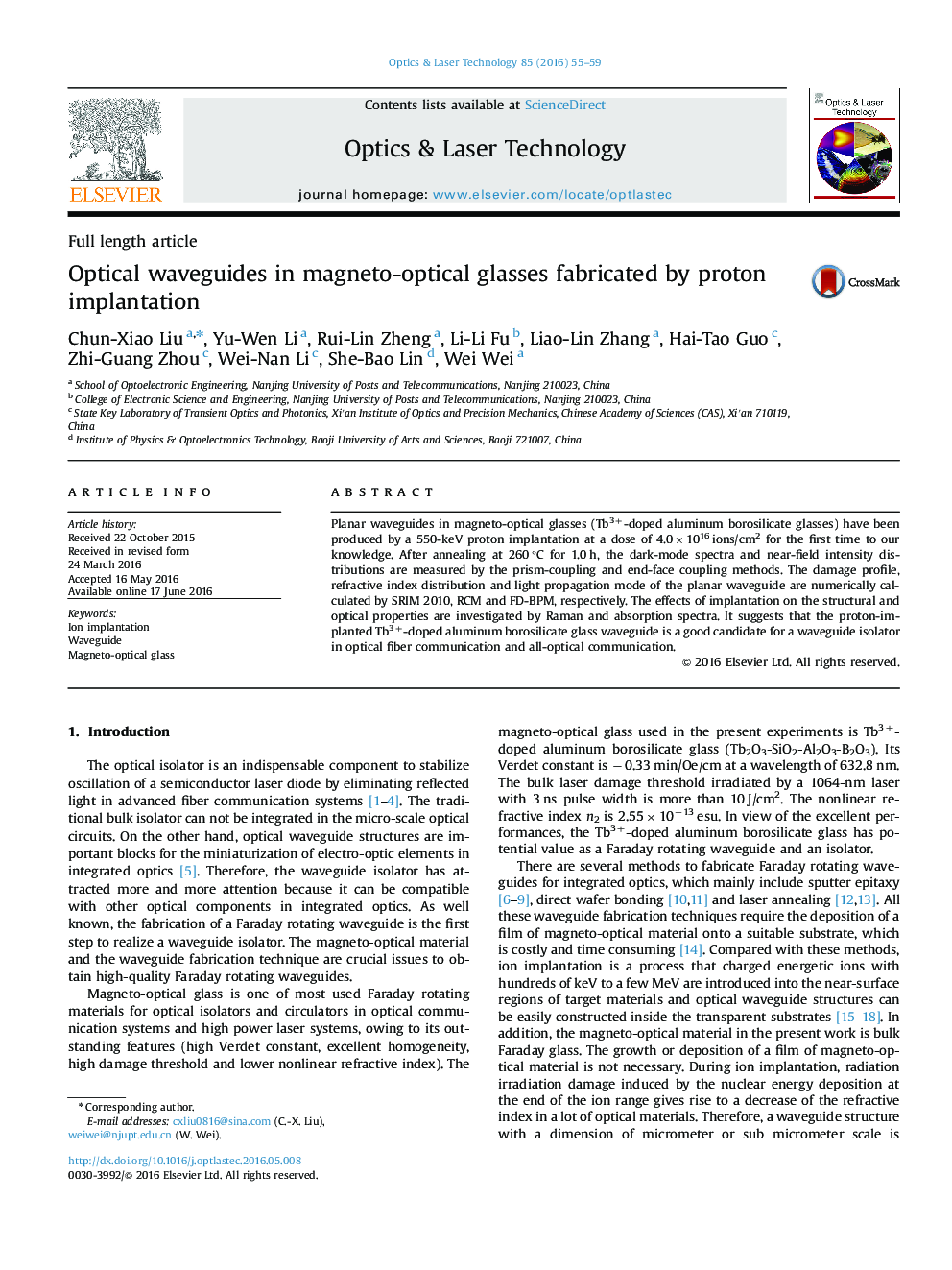| Article ID | Journal | Published Year | Pages | File Type |
|---|---|---|---|---|
| 733175 | Optics & Laser Technology | 2016 | 5 Pages |
•Planar waveguides in magneto-optical glasses are formed by proton implantation.•Waveguides demonstrate acceptable guiding properties.•The effects of implantation on the structural and optical properties are obvious studied.
Planar waveguides in magneto-optical glasses (Tb3+-doped aluminum borosilicate glasses) have been produced by a 550-keV proton implantation at a dose of 4.0×1016 ions/cm2 for the first time to our knowledge. After annealing at 260 °C for 1.0 h, the dark-mode spectra and near-field intensity distributions are measured by the prism-coupling and end-face coupling methods. The damage profile, refractive index distribution and light propagation mode of the planar waveguide are numerically calculated by SRIM 2010, RCM and FD-BPM, respectively. The effects of implantation on the structural and optical properties are investigated by Raman and absorption spectra. It suggests that the proton-implanted Tb3+-doped aluminum borosilicate glass waveguide is a good candidate for a waveguide isolator in optical fiber communication and all-optical communication.
